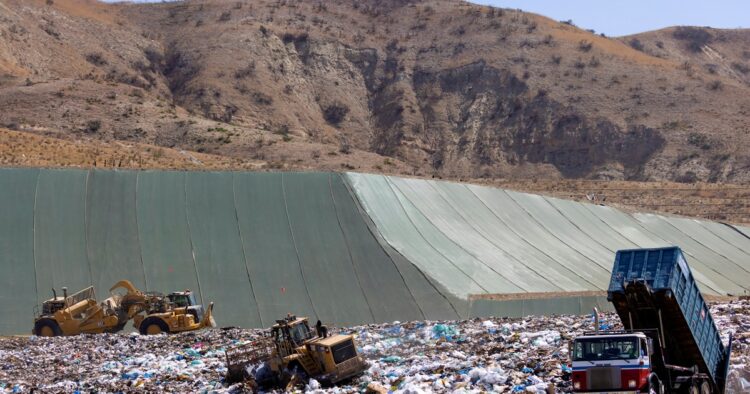New Study Reveals Alarming Levels of Methane Emissions from US Landfills
A recent study has shed light on the concerning levels of methane emissions emanating from landfills across the United States. Conducted over a span of four years, researchers flew over more than 200 landfills in 18 states, marking one of the largest surveys of its kind. The findings, published in the journal Science, unveil that methane emissions from landfills are significantly higher than previously reported, posing a grave threat to the environment.
Understanding Methane Emissions
Methane, a potent greenhouse gas, is emitted when organic waste like food scraps and paper decomposes in landfills without access to oxygen. These emissions contribute significantly to global warming, with methane being over 80 times more potent than carbon dioxide in the short term. While industries like oil and gas and agriculture are known methane sources, landfills often fly under the radar despite accounting for around 20% of human-caused methane emissions worldwide.
Shortcomings in Current Measurement Methods
Landfills in the US are required to measure methane emissions four times a year through walking surveys using handheld sensors. However, the accuracy of these surveys is questionable, as hazardous terrain and active dumping areas often deter accurate measurements. As a result, estimates of methane emissions from landfills rely heavily on models rather than direct measurements, leading to potential gaps in data.
Advanced Monitoring Techniques
The study employed advanced monitoring systems, including remote sensing from aircraft, drones, and satellites, to provide a more precise assessment of methane emissions from landfills. Using airborne imaging spectrometers, researchers detected methane plumes at more than half of the landfills surveyed, surpassing detection rates observed in the oil and gas sector.
Implications and Urgency for Action
The discrepancy between reported methane emissions and actual levels underscores the urgent need for enhanced monitoring and regulatory measures. Average methane emission rates from landfills were found to be 1.4 times higher than those reported to existing environmental programs, indicating significant underestimation of landfill emissions. Moreover, landfill methane emissions were observed to persist over extended periods, highlighting the need for sustained mitigation efforts.
Call for Comprehensive Policies
While existing methane policies primarily target the oil and gas industry, experts emphasize the importance of addressing emissions from landfills. Given the persistent nature of landfill methane emissions and their substantial contribution to climate change, there is a pressing need for comprehensive policies that encompass waste management practices. Scientists assert that mitigating methane emissions from landfills is crucial for achieving climate targets and combating global warming effectively.
The findings of the study serve as a wake-up call, urging policymakers to prioritize efforts aimed at reducing methane emissions from landfills. With the detrimental impact of methane on climate change becoming increasingly evident, concerted action is imperative to curb emissions from all sources, including landfills, and mitigate the looming environmental crisis.

















Comments